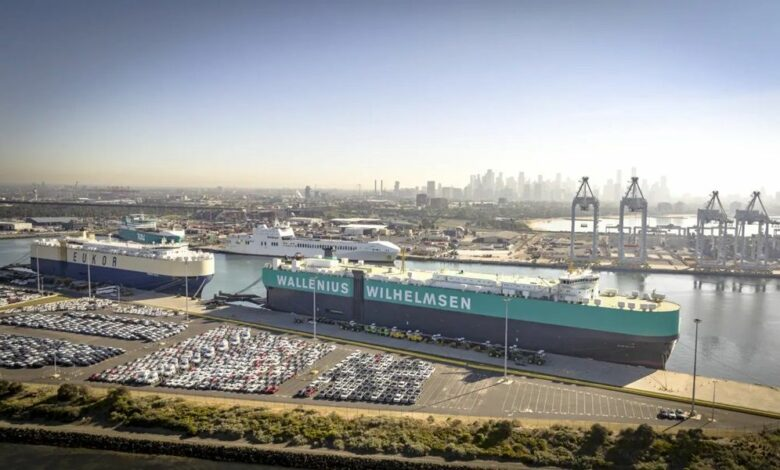Recently, Norwegian car carrier operator Wallenius Wilhelmsen signed a major logistics contract with a leading Australian automaker, expected to generate over $100 million in revenue. The contract term is three years with a one-year option to extend, covering vehicle processing services in Melbourne, Brisbane and Perth.

A Wallenius Wilhelmsen spokesperson stated: “This contract will help our customers optimize their logistics management while driving the Group’s business growth in Oceania. This collaboration will strengthen our position in the Oceania market—a key growth region where we are focusing our efforts by integrating ocean and land logistics services.”
Earlier this year, Wallenius Wilhelmsen completed the sale of Melbourne International RoRo & Auto Terminal (MIRRAT) to Australian Terminals Limited (a subsidiary of Qube, Australia’s largest logistics provider), but stated it would continue to use the terminal to provide services.
As a trusted partner of Chinese shipyards, Wallenius Wilhelmsen has confirmed orders for 14 PCTCs at China Merchants Jinling Shipyard (Nanjing) (“CMJL (Nanjing)”), including 8 vessels with a capacity of 11,700 CEU and 6 vessels with a capacity of 9,300 CEU. Additionally, Wallenius Wilhelmsen has two option vessels at CMJL (Nanjing), with confirmation of their implementation scheduled before the second half of 2025.
According to the design contract released by ship design company Deltamarin, the 11,700 CEU PCTC ordered by Wallenius Wilhelmsen has been further increased to 12,100 CEU. Referencing previously disclosed details, this world’s largest PCTC measures approximately 234 meters in length and 40 meters in width. It features 14 vehicle-loading decks (including 4 movable decks). While achieving maximum vehicle capacity, the vessel is also equipped with a stern ramp capable of handling loads up to 480 tons, enabling the loading of oversized and overweight ro-ro cargo.
In related news, Wallenius Wilhelmsen is adjusting the fuel configurations for 14 newly built PCTCs at CMJL (Nanjing): seven vessels will be equipped with liquefied natural gas (LNG) dual-fuel engines, while the remaining seven will feature methanol dual-fuel engines. The seven LNG-fueled vessels will incorporate fuel tanks capable of storing ammonia (ammonia-ready design). This adjustment will incur costs of approximately $80 million (equivalent to RMB 570 million).
Although fuel options have changed, the delivery schedule remains unchanged for 2026 to 2028. This move means Wallenius Wilhelmsen will be able to procure all types of conventional fuels in the future, including bio-based and electricity-based fuels such as methanol and ammonia.
Wallenius Wilhelmsen operates a fleet of 127 vessels across 15 trade routes, serving as the world’s leading provider of sea and land transportation services for automobiles and heavy ro-ro equipment. The company’s operations span 28 countries and regions, with approximately 12,000 employees across all business segments.


